#only to discover that thomas has also changed in the same direction and is the first to suggest drastic action
Explore tagged Tumblr posts
Text
black sails ending possibility #72: whether or not silver successfully 'unmakes' flint doesnt matter because it turns out that after spending a decade in asylums and prison camps thomas has also gotten radicalized as fuck and immediately reverses all of silver's efforts
#im sure there are already fics like this#i just love the idea of james thinking he's changed too much and that he can't give up his new worldviews even for thomas#only to discover that thomas has also changed in the same direction and is the first to suggest drastic action#the political situation in early colonial georgia is quite unique. i would imagine it would have an impact on someone so justice-oriented#...ofc this implies that the obvious original tragedy is semi-displaced into a Secret Second Tragedy later on#we know what happens to flint by the beginning of TI after all
111 notes
·
View notes
Text
Rough timeline of the discovery of genes and DNA
(mostly condensed from the first half of S. Mukherjee, The Gene: An Intimate History, 2016, and this 1974 paper)
1857-1864: Gregor Mendel experiments with breeding peas at the monastery of Brno. The results show that information about flower color, pod shape etc. is transmitted in discrete blocks that do not mix, and can persist unexpressed in a generation to manifest again in the next.
1865-1866: Mendel's results are published in a minor journal and effectively forgotten for 35 years. He corresponds with physiologist Carl von Nägeli, who dismisses them as "only empirical" (???).
1868: Unaware of Mendel's work, Darwin proposes pangenesis as mechanism of heredity: every body part produces "gemmules" that carry hereditary information and merge to form gametes. This does not explain how new traits aren't immediately diluted out of existence, or why acquired changes aren't inheritable.
1869: Friedrich Miescher extracts a mysterious substance from pus on used bandages and salmon sperm. He calls it nuclein (later: chromatin), as it seems to be concentrated in cell nuclei.
1878: Albrecht Kossel separates nuclein into protein and a non-protein component, which he calls nucleic acid, and breaks it down in five nucleotides.
1882: Darwin dies, bothered -- among other things -- by the lack of a plausible mechanism to transmit new variation. Legend has it that Mendel's paper lay on a bookshelf of his study, unread.
1883: August Weissmann, noting that mice with cut tails always give birth to fully-tailed mice, theorizes that hereditary information is contained in a "germplasm" fully isolated from the rest of the body, contra pangenesis. At each generation, only germplasm is transmitted, and gives separate rise to a somatic line, i.e. the body, which isn't.
ca. 1890: Studying sea urchin embryos in Naples, Theodor Boveri and Wilhelm von Waldeyer-Hartz notice large coiled masses of nuclein inside cell nuclei which can be dyed blue with aniline. They call them chromosomes, literally "colorful bodies". Simultaneously, Walter Sutton discovers chromosomes in grasshopper sperm.
1897: Hugo de Vries, after collecting hundreds of "monstrous" plant varieties near Amsterdam, realizes (also unaware of Mendel's work) that each trait is due to a single discrete particle of information, never mixing with the others, which he calls pangene in homage to Darwin. He also notices the appearance of completely new variants, which he calls mutants. In the same year, Carl Correns -- a former student of Nägeli, who had completely neglected to mention Mendel's work -- reproduces it exactly in Tubingen with pea and maize plants.
1900: Having finally found out about Mendel's publication, De Vries rushes to publish his model before he can be accused of plagiarism, which happens anyway. Correns does the same. Erich von Tschermak-Seysenegg also independently recreates Mendel's results with pea plants in Vienna. Come on, guys, this is embarassing.
1902: Boveri and Sutton independently propose that hereditary information is carried by chromosomes. Supporters of this hypothesis generally hold that information is carried by proteins, with the simpler nucleic acids (only 5 nucleotides vs. 20 aminoacids) serving as scaffold.
1905: William Bateson coins the word genetics to describe the field growing mostly from De Vries' work. He realizes it should be possible to deliberately select organisms for specific individual genes. Meanwhile, Boveri's student Nettie Stevens discovers in mealworms a strangely small chromosome that is found only in males -- chromosome Y. This is the first direct evidence that chromosomes do, in fact, carry genetic information.
1905-1908: Thomas Hunt Morgan and his students breed and cross thousands of fruit flies in a lab in New York. Contra Mendel, they notice that traits are not passed down in a completely independent way: for example, male sex and white eyes usually manifest together. This suggests that their information particles are attached to each other, so that the physically-closest traits are more likely (but not guaranteed!) to be transmitted together.
1909: Phoebus Levene and his coworkers break down nucleic acids by hydrolysis into sugars, phosphate, and nucleobases. They assume that nucleobases must repeat along a chain in a repetitive sequence. In a treatise on heredity, Wilhelm Johannsen shortens "pangene" to gene. It's a purely theoretical construct, with no known material basis.
1911: Using Morgan's data on trait linkage, his student Alfred Sturtevant draws the first genetic map, locating several genes along a fruit fly chromosome. Genetic information now has a physical basis, although not yet a mechanism of transmission.
1918: Statistician Ronald Fisher proposes that traits appearing in continuous gradients, such as height, can still be explained by discrete genes if multiple genes contribute to a single trait, resolving an apparent contradiction. (Six genes for height, for example, are enough to produce the smooth bell curve noticed half a century earlier by Francis Galton.)
ca. 1920: Bacteriologist Frederick Griffith is studying two forms of pneumococcus, a "smooth" strain that produces deadly pneumonia in mice (and people) and a "rough" strain that is easily dispatched by immunity. He finds out that if live "rough" pneumococci are mixed with "smooth" ones killed by heat, the "rough" can somehow acquire the deadly "smooth" coating from the dead.
1926: Hermann Muller, another student of Morgan, finds out he can produce arbitrary amounts of new mutant flies by exposing their parents to X-rays.
1928: Griffith describes the acquired "transformation" of bacteria in an extremely obscure journal.
1929: Levene identifies the sugars in "yeast nucleic acid" and "thymus nucleic acid" as ribose and deoxyribose, respectively. The two will henceforth be known as ribonucleic acid (RNA) and deoxyribonucleic acid (DNA).
ca. 1930: Theodosius Dobzhansky, who also had worked with Morgan, discovers in wild-caught fruit flies variations of wing size, eye structure etc. that are produced by genes arranged in different orders on the chromosome. This rearrangement is the first physical mechanism for mutation discovered.
1940: Oswald Avery repeats Griffith's experiments with pneumococci, looking for the "transforming principle". Filtering away the remains of the cell wall, dissolving lipids in alcohol, destroying proteins with heat and chloroform does not stop the transformation. A DNA-degrading enzyme, however, does. Therefore, it is DNA that carries genetic information.
1943: By mixing flies with different gene orders and raising the mixed populations at different temperatures, Dobzhansky shows that a particular gene order can respond to natural selection, increasing or decresing in frequency.
1944: Avery publishes his results on transforming DNA. Physicist Erwin Schrödinger writes a treatise (What Is Life?) in which he states, on purely theoretical ground, that genetic information must be carried by an "aperiodic crystal", stable enough to be transmitted, but with a sequence of sub-parts that never repeat.
1950: In Cambridge, Maurice Wilkins starts using X-ray diffraction to try and make a picture of the atomic structure of dried DNA (as Linus Pauling and Robert Corey had done earlier with proteins). He is later joined by Rosalind Franklin, who finds a way to make higher-quality pictures by keeping DNA in its hydrated state. By hydrolyzing DNA, Erwin Chargaff notes that the nucleobases A and T are always present in exactly the same amount, as if they were paired, and so are C and G -- but A/T and C/G can be different amounts.
1951: Pauling publishes a paper on the alpha-helix structure of proteins. Having attended talks by Wilkins and Franklin, James Watson and Francis Crick attempt to build a physical model of DNA, a triple helix with internal phosphate, but Franklin notes it's too unstable to survive.
1952: Alfred Hershey and Martha Chase mark the protein envelope of phage viruses with radioactive sulfur, and their DNA with radioactive phosphorus. The phosphorus, but not the sulfur, is transmitted to host bacteria and to the new generation of phages. This indicates that DNA is not just exchanged as "transforming principle", but passed down through generations.
1953: Pauling and Corey also propose a structure of DNA, but they make the same mistake as Watson and Crick. These receive from Wilkins an especially high-quality photo (taken in 1952 by either Franklin or her student Ray Gosling). Combining this picture with Chargaff's measurements, they conclude that DNA must be a double helix, with a sugar-phosphate chain outside, and nucleobases meeting in pairs on the inside (A with T, C with G). The complementary sequences of bases give a clear mechanism for the storage and replication of genetic information.
1950s: Jacques Monod and François Jacob grow the bacterium Escherichia coli alternately on glucose and lactose. While its DNA never changes, the RNA produced changes in step with the production of glucose-digesting and lactose-digesting enzymes. So DNA is not directly affected, but different sequences are copied onto RNA depending on need.
1958: Arthur Kornberg isolates DNA polymerase, the enzyme that builds new DNA strands in the correct sequence. By inserting into DNA a heavier isotope of nitrogen, Matthew Meselson and Franklin Stahl show that each strand remains intact, separating during replication and then serving as template for a new one.
1960: Sydney Brenner and Jacob purify messenger RNA from bacterial cells. This seems to copy the sequence of a single gene and carry it to ribosomes, where proteins are built. RNA must encode the sequence of aminoacids of a protein, presumably in sets of 3 nucleotides (the smallest that can specify 20 aminoacids).
1961-1966: Multiple labs working in parallel (Marshall Nirenberg-Heinrich Matthaei-Philip Leder, Har Khorana, Severo Ochoa) map every possible triplet of nucleotides to a corresponding aminoacid. Synthetic RNA is inserted into isolated bacterial ribosomes, and aminoacids are marked one at a time with radioactive carbon to check the sequence of the resulting proteins.
1970: Paul Berg and David Jackson manage to fuse DNA from two viruses into a single sequence ("recombinant DNA") using DNA-cutting enzymes extracted from bacteria.
1972-1973: Janet Mertz joins Berg and Jackson, and proposes inserting the recombinant DNA into the genome of E. coli, exploiting the bacterium for mass production. Herb Boyer and Stanley Cohen perform a similar experiment merging bacterial DNA, and linking it to an antibiotic-resistance gene so that the recombinant bacteria can be easily isolated.
1975-1977: Frederick Sanger isolates template strands of DNA to build new ones with DNA polymerase, but uses altered and marked nucleobases that stop polymerization. By doing so, then segregating the shortened sequences by length and recognizing their final base with fluorescence, it's possible to read the exact sequence of bases on a DNA strand.
350 notes
·
View notes
Text
Hello everyone, I'm Oswigail and today I come to show you one of my alternate universes of Thomas and his friends, my human versions called 100% humanized, a world where the characters are students, locomotive drivers and locomotive drivers, or in some others. cases the guards or another official of the northwest railway of Sodor governed and directed by Sir Tophan Hat and here are the characters that have the most prominence in my au. 1 Thomas, who everyone already knows, but now as a young man of 15 years (in this universe he is paired with Rosie from the ships later we discuss) Thomas in this universe has the responsibility of being an older brother after saving his mother Lady from Diesel 10 he discovers that his mother had another daughter, one called Lady Jr, whom he must take care of at the request of his mother, whom it is not very common to see.2 Edward, a boy (here he is not old, honestly, he seems anything but an old man) well a wise and kind but shy but brave and helpful young man.3 Henry is the same scared young man as always paranoid and a little hypochondriac but it is simple a young man who was completely planned to be granted but not in the traditional way behind manipulating some things about his genetics looking for the perfect child was simply the opposite and the biggest scam and crime with the illusion of a couple who had difficulties having children, adding this to the unstable state of health of his mother, resulted in a premature Henry. and sickly going from hospital to hospital seeking to heal his illnesses until he decided to try experimental medications seeking to improve all his weaknesses and currently we are seeing the change (it is the equivalent of special charcoal and its reconstruction).4 Gordon, the oldest of the group although He shares the same age as his best friend Henry, the only one who will always have to endure him being childhood friends but still that bond is too strong Gordon and Henry are opposites because Henry is weak and sickly Gordon although he had health problems in the past more also family conflicts, he is Healthy, athletic, strong, fast and the strongest of the group, things that he seeks to increase in his quest to be the express train Gordon and Henry opposite but that does not prevent him from continuing to have his arrogant, arrogant, conceited, and even discriminatory attitudes that Henry almost always He has to correct so that his friend does not get the hatred of everyone because he knows better the reason for his attitude. 5 James, our dear reddish boy, the most conceited member of the steam team, conceited and often unbearable unless he has charisma James is simply James, I know he thinks he is the most handsome not only of the team but of the group but that doesn't stop him from having to put down to earth whenever he realizes or they let him know that he ruined everything James has a strong crush on Emily and hates seeing her sad because of him they are explosive many times but it is a relationship of yes you can stand me I will stand you better the typical boyfriends that one day they fight and the next they forgive each other.6 Percy is a very kind young man, Percy is small and adorable but he also has his fearful side but he also still retains his cheeky and mischievous side that he always tries to repress but it is something he knows will never go away. although a good friend to Thomas and a good boy to Lady Jr., Thomas' little sister. These are the first characters, the list goes on but I will bring it in parts
You can start asking your ship questions or au questions Or just questions from the characters I introduced for now
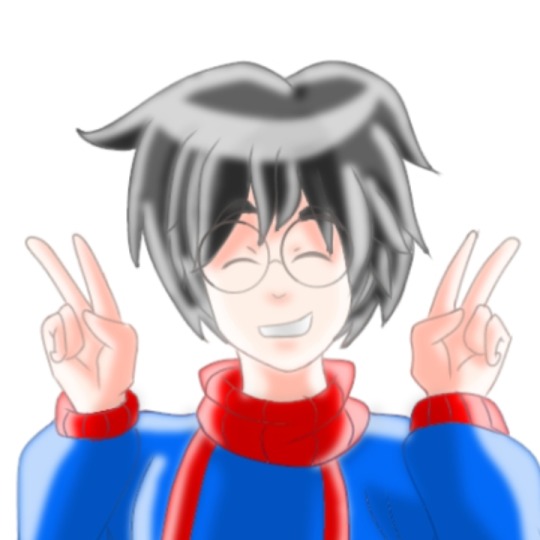
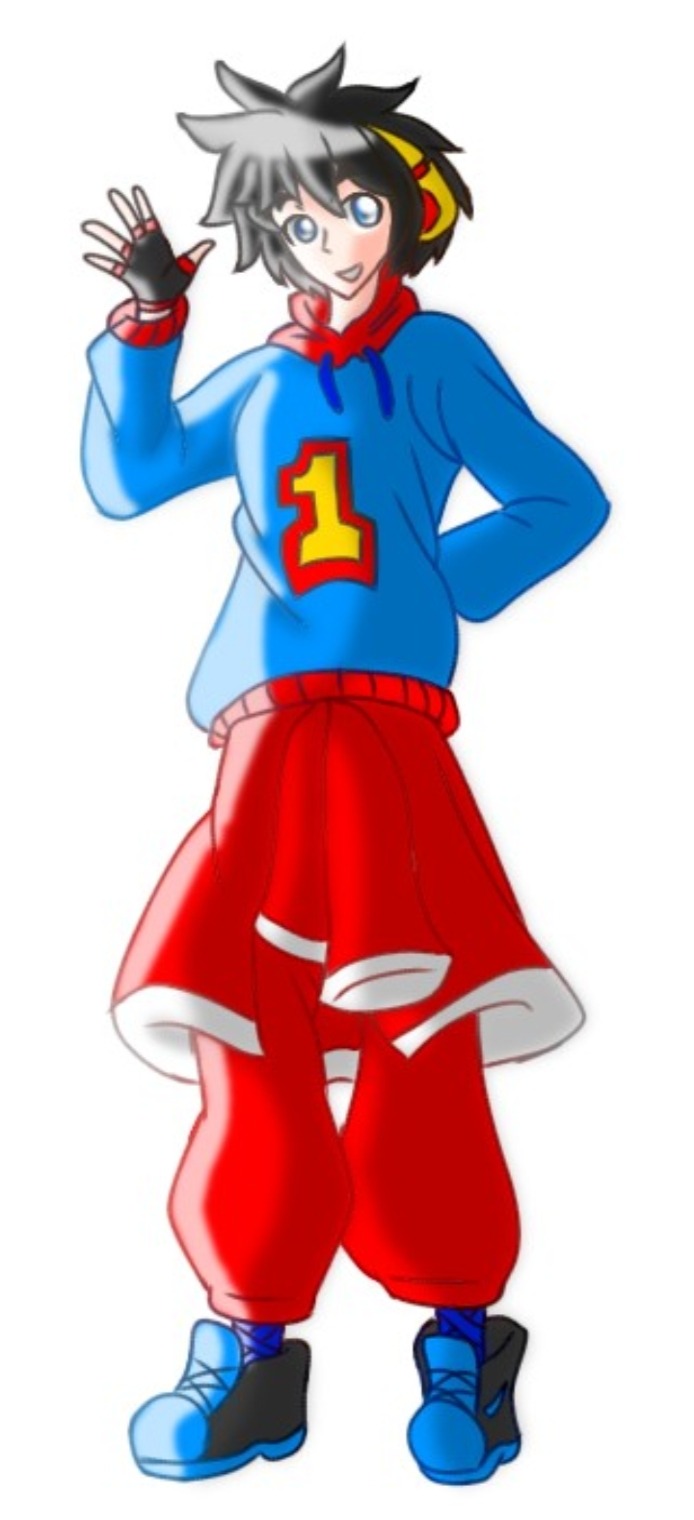
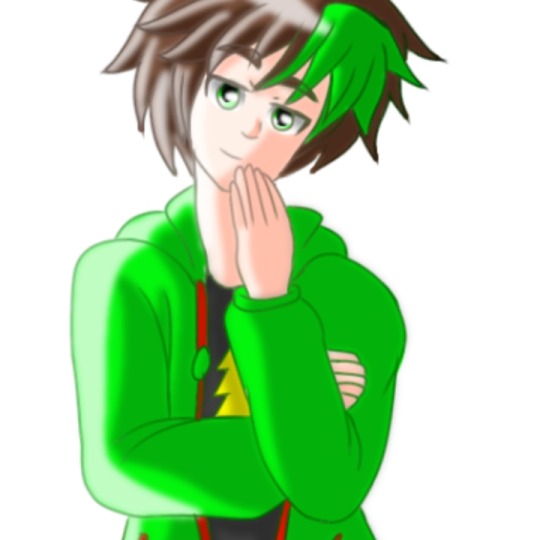

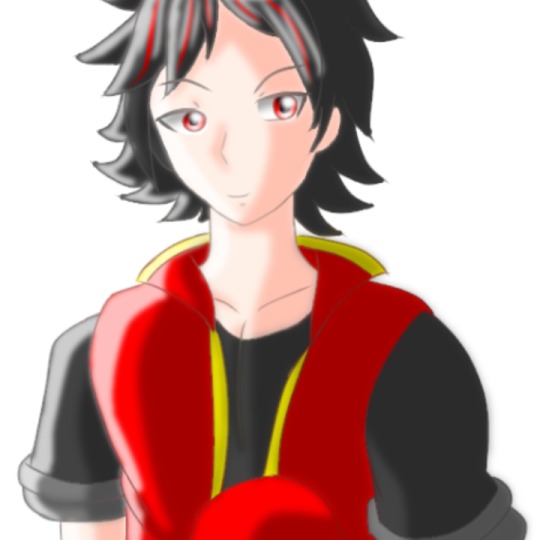
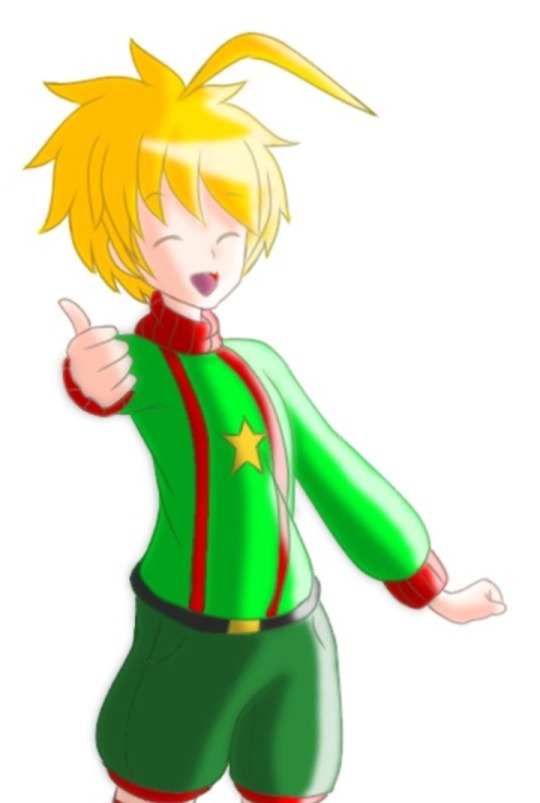
#anime#thomas and friends#humanized version#alternate universe#headcanon#thomas the tank engine#edward the blue engine#edward ttte#thomas the train#henry the green engine#ttte gordon#gordon the big engine#gordon the express engine#gordon the blue engine#james the red engine#james ttte#percy the small engine#percy the green engine#percy ttte
12 notes
·
View notes
Text
What happened to Arsenal?
"If you compare this game with last season, we can say it was 10 times better than last season, at least 10 times better." Hearing Arteta's words, and looking back at the result of Saturday's 2-2 game, Arsenal played at home, and Fulham lost one player in the last 10 minutes. I said bluntly: I am very disappointed.
It is true that the coach is not convinced after the game, and it is normal and commonplace for the coach to bite the bullet and say "we played better" if he did not play well. And Arsenal is indeed "overall dominant" in some statistics, such as the ball possession rate of more than 70%; as many as 19 shots are more than twice that of the opponent (8); the number of shots on target is even more , A total of 11 times crushed Fulham's 3 times. But is it really "Arsenal is better just bad luck"? As long as you have watched Arsenal's performance in the new season, you can actually detect that they have systemic problems, and it is not accidental that there are mistakes.
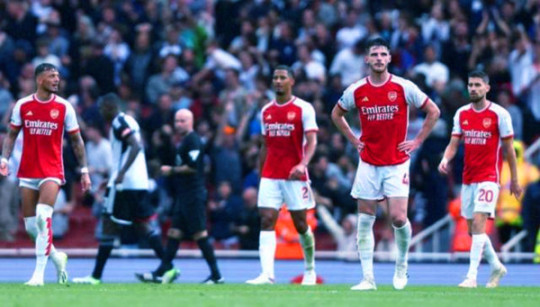
Generally speaking, 캡도메인 thinks that something like Saka's return error and direct assist to the opponent within one minute of the opening should be regarded as a temporary trance accident, but as long as you think about it a little bit, you will feel that this has already been buried. the bane. Why did Saka return the ball to a blank space without thinking? Wasn't it because of inertial thinking that he felt that there would be a right back/right center back there? But the reality is that Arteta changed his formation and changed his tactical requirements. Thomas, who was born as a defensive midfielder, wanted to play right back and move forward to the midfield. Ben White, who returned to the central defender position, had to pull side protection again. Just let out such a big hole.
Stubbornly trying new formations is the biggest "unsolved mystery" of Arsenal's new season. To put it simply, this is probably Arteta's continued tribute to Guardiola. Last season, he learned the trick of pressing the left back to the center to score the ball. This season, he will practice "right back kicking the midfielder". However, the staffing of Arsenal and Manchester City is not the same, and there is actually a subtle gap in the playing style. It is really awkward to copy them bluntly.
Not only this round, but also the 2-1 victory over Nottingham Forest in the first round of the league, the tactical problem is extremely conspicuous: even though Arsenal scored two goals in the first half, the defensive width is not enough, especially if they do not make up the right wing in time, they are afraid of being caught. The flaw of the quick raid was quickly discovered by the opponent, and it was good luck to be able to keep the 3 points in the end.
In fact, Manchester City's usual 4-back change to 3-back is mainly done by defenders such as Walker, Stones and Rico Lewis. It's putting the cart before the horse. What's even more weird is that Arsenal didn't lack a right back. Before Timber was injured and Tomiyasu got a red card, Arteta even handed over the left defensive position to the original right back, which is equivalent to disabling the entire defensive system. I tuned it again. And depending on the effect of such a change, losing 3 goals in 3 rounds is obviously not ideal. At the same time, it also aroused more doubts about the employment of the coach: As one of the absolute main players of the team last season, why did Saliba's best partner Gabriel suddenly come off the bench? Only played less than 30 minutes in the first two rounds, and even with Tomiyasu suspended in this round, Arteta's backup starter was Kiviol.
From a tactical point of view, it may be that the Polish defender is more suitable to play as a left back on the wing, while the Brazilian is closer to the traditional central defender, so he was sacrificed. But is this sacrifice worth it? When Fulham, who has one less man, used a corner kick to equalize the score, I believe many Arsenal fans will make the assumption: if Gabriel, who has a strong air defense ability, is there, will the opponent's 1.90-meter-tall Parrinha be the best? Won't be emptied?
Of course, there is another possibility that a Saudi team wants to sign Gabriel. If there is such a thing, it is logical that Gabriel is restless and not suitable for starting. But having said that, hasn't Thomas also had a scandal with the Saudi League this summer?
Arsenal decided to stay and stayed with peace of mind. Moreover, Gabriel only renewed his contract until 2027 in October last year. It must be more difficult for other teams to sign than to buy Thomas. In this regard, transfer expert Romano also broke the news not long ago: "Arsenal will not sell their high-quality players, even if someone offers 200 million euros, they will not let Gabriel go."
If Gabriel hadn't been temporarily abandoned because he wanted to leave, it would be even more bizarre for Arteta's tactical experimentation, which was tantamount to giving up his best central defender combination in order to let Thomas play the "right midfielder". At the same time, the staffing on the left and the offensive and defensive system on the right were also affected. Prior to this, Arteta had denied that he would send Tierney away, but now it seems that this traditional left-back with a side-to-side bottom is already on his way to Real Sociedad on loan-even if the "new main left-back Defender Timber will have to recuperate for a long time, and Arsenal will not have much time left for Tierney, because someone took up the right wing and started, and the back line suddenly became quite crowded.
Tierney was once considered the most promising player in Scotland and is expected to surpass Liverpool left-back Robertson. It is definitely a pity that he cannot shine in Arsenal or even lose his position completely. But what is even more regrettable is that the changes that forced him to leave did not bring enough ideal returns. If the reuse of Zinchenko last season activated Xhaka, the transformation of Thomas this season has not yet been discovered. of subtlety. As mentioned above, the gunners who have changed have defensive weaknesses on the right, and it doesn't stop there. The attack power on the right also has a downward trend. Although Saka scored the world wave in the first round and tied for the top scorer in the team with 2 goals in 3 rounds, without Ben White's frequent lapping and cooperation, there are indeed more scenes where the English winger struggles to fight alone. In addition, let’s look at the team’s 3 assists. Except for Saliba who steals from the right frontcourt in the first round, Martinelli and Fabio Vieira both assisted from the left. Vieira also made points in this game Enter from the left.
The hidden dangers in the backcourt have become bigger, and the two wings of the frontcourt cannot fly at the same time. The "most significant effect" of the new formation is only to increase a large number of invalid ball possession. This is certainly not a successful attempt, so it is also puzzling why Arteta is so stubborn. After switching back to the old routine of last season, the Gunners' substantial threats immediately increased. Two goals in a row resulted in a red card. If it weren't for the distraction at the last moment, it is quite hopeful to get 3 points.
Another point that must be mentioned is that in the pre-season warm-up stage, Arteta’s tactical choice is not as unconventional as it is now: 4 defenders configuration, the central defender is basically the same as last season, the right is either Ben White, Timber or Tomiyasu, at most The use of Timber and Kiviol on the left is a bit of an experiment. Including the Community Shield against Manchester City, Timber, Gabriel, Saliba and Ben White were side by side from left to right, and they did not show the feeling of changing their faces completely. In this regard, 캡도메인 can only guess that Arteta may feel that some problems have been revealed in the warm-up match, so he needs to solve them by changing formations.
So what's the problem? One thing is certain is that after Xia Chuang spent 200 million pounds on reinforcements, spending money did not make the Gunners feel "doubled in strength", but needed to find their own balance again. From being defeated 2-0 by Manchester United with a surprise attack, to staged a 5-3 goal battle with the under-prepared Barcelona, Arsenal's defensive performance has always been flawed-including 4 warm-up matches, they have only had one match in the past 7 games. Crystal Palace got a clean sheet.
Although Rice, who is worth more than 100 million, is considered the best defensive midfielder in England, it is definitely not the best choice to entrust all the interception tasks to one person. Compared with last season, Arsenal's midfielder did not have Xhaka, who was "backward and forward", and Haverts, who was withdrawn from the guest center position, the overall defensive ability must have declined, so let Thomas help It is also a way of thinking. But there are only so many positions in the midfield, and the left and right wingers and Erdegaard's main positions are unshakable. Haverts has long proved embarrassing and useful as a center forward, so there is a "sacrifice right back"?
As far as the current situation is concerned, no matter what Arteta's thinking is, the goal he wants must not be achieved. The backcourt is chaotic, and the frontcourt is not that powerful, especially Haverts, who was introduced with a lot of money, seems a bit at a loss in the whole system. You can't count on him in defense, and the organization doesn't need him, and the "forward feature" that was originally considered to be highly malleable can't show its effect. Against Fulham, the German also had two "wonderful shots": one was when Saka knocked from behind in the first half, and Haverts outflanked the empty goal. The opponent's defender almost missed the sideline; the second is the left-sided inverted triangle assist Erdegao scored a long-range shot, but the ball was offside first, and the German was not rushing fast, so he passed the ball instead of The shot is over.
0 notes